Master’s Programs

Welcome to Graduate Medical Sciences, part of the top-ranked Boston University Chobanian & Avedisian School of Medicine. We are thrilled that you are considering us for your graduate education! Are you ready to start making a difference?
Our professional master’s degrees represent a wide range of medical and health related fields that prepare students for both direct entry into the work force and further graduate study.
 Anatomy & Neurobiology – Vesalius Program
Anatomy & Neurobiology – Vesalius Program
The Vesalius Program is a unique MS degree program offered through the Anatomy and Neurobiology Department that concentrates on developing teaching skills in the biomedical sciences. The Vesalius Program offers small advanced teaching courses combined with one-on-one mentoring with experienced and award-winning faculty to provide students with extensive mentored teaching experience.
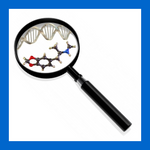 Biomedical Forensic Sciences
Biomedical Forensic Sciences
This program trains aspiring and mid-career professionals in a variety of forensic disciplines related to crime scene investigation and evidence analysis. Professionals trained in these disciplines are crucial to today’s comprehensive forensic investigations. Completing this degree will qualify graduates to work as forensic scientists, DNA analysts, chemists, death investigators and crime scene responders at the local, state, and federal levels.
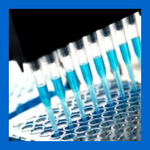 Biomedical Research Technologies
Biomedical Research Technologies
The MS program is a 32-credit program designed to prepare future experts with solid grasp of principles underlying research core operation and its relevance to an array of biomedical problems, as well as with technical skills to implement these technologies. Core courses include theory and research including flow cytometry, imaging, metabolic function, or proteomics, in addition to electives offered in areas related to Science Behind Technology, Business Management, and Clinical/Translational Research.
 Clinical Research
Clinical Research
The MS and certificate programs in Clinical Research teach students the scientific fundamentals of human research. The curriculum provides an in-depth look at the key elements in clinical research, including trial design, trial management, biostatistics, ethical issues, and clinical research regulations. Other courses cover how basic science discoveries translate into clinical research and new therapies.
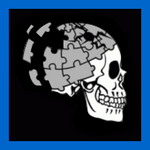 Forensic Anthropology
Forensic Anthropology
The Forensic Anthropology Program offers a variety of courses in forensic anthropological techniques and procedures, human anatomy, osteology, pathology, human remains recovery, death investigation, research design, expert witness testimony and forensic science. Completion of this program will prepare students to continue their graduate education in a doctoral program and/or work as a forensic anthropologist or medicolegal death investigator.
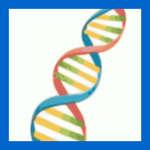 Genetic Counseling
Genetic Counseling
The MS program in Genetic Counseling is 48-credit hour, two-year program, which has received full accreditation from the American Board of Genetic Counseling. The Program’s primary objective is to educate graduate students in the core concepts of human genetics and counseling. Our focus is to provide students with the appropriate knowledge, experience, and mentoring to become competent, sensitive, and motivated genetic counselors.
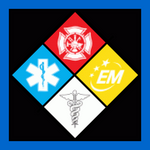 Healthcare Emergency Management
Healthcare Emergency Management
The MS in Healthcare Emergency Management prepares individuals to work across the spectrum of emergency and crisis management. It provides a learning environment with experience in multiple areas of biomedical sciences and health care. Key areas of instruction include crisis and disaster management, risk communication, and crisis management for community based medical care, services and support systems. Previous experience as a first-responder is not a requirement for program admission.
Health Professions Education Program
The Health Professions Education program provides a wide range of practical training for health sciences educators in the principles of education and teaching, applicable to their specific health sciences discipline. It is designed for professionals who seek to improve their skill set and advance their career with degrees in nursing, medical, or other health professions, as well as those with degrees in health sciences, including those with an advanced degree or terminal masters (MD, DO, PA, DMD, PhD). The broad range of required courses along with a mentored practicum supports world-class health sciences educators.
Medical Sciences
The MS in Medical Sciences Program introduces students to a broad range of topics in the medical sciences while strengthening their academic credentials for admission to medical, dental, or other professional schools. This 32-credit hour program can be completed in either one or two years. A laboratory or literature-based thesis is required and many students elect to complete the program in two years, using the second year to gain valuable research experience.
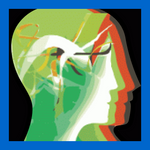
Mental Health Counseling and Behavioral Medicine
Accredited by the Council for Accreditation of Counseling and Related Educational Programs (CACREP), this intensive 60-credit degree program is designed to meet the requirements for an independent mental health-care license in Massachusetts and other states. The primary objective is to prepare individuals in mental health counseling interventions with a complementary background in behavioral medicine and neuroscience.
 Nutrition and Metabolism
Nutrition and Metabolism
The MS degree in Nutrition and Metabolism will provide you with the fundamental knowledge needed to understand the role of nutrition in the prevention of disease and maintenance of human health. The master’s degree also provides students with the multidisciplinary knowledge needed to pursue professional degrees in medicine and dentistry, PhD degrees in biomedical sciences and epidemiology, and research careers in academia and industry.
 Oral Health Sciences
Oral Health Sciences
The MS in Oral Health Sciences introduces students to a broad range of topics in the oral health and medical sciences while strengthening their academic credentials for admission to dental school. It is a 32-credit hour program that can be completed in one or two years. A capstone project or thesis is required, with some students electing to use the second year to gain additional research experience.
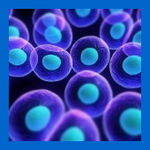 Pathology Laboratory Sciences
Pathology Laboratory Sciences
The MS in Pathology Laboratory Sciences program focuses on both basic science and laboratory techniques of pathology and related disciplines to prepare graduates for work in basic science, biotechnology, and various biomedical research laboratories. Students will learn to prepare and evaluate animal or human cells and tissues for the effects of test compounds, devices, or procedures using morphologic methods.
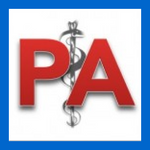 Physician Assistant
Physician Assistant
Conferring a MS degree, the Physician Assistant Program is a 114.5-credit hour, 34-month program that educates generalist physician assistants who are prepared to practice in a myriad of specialties and settings over the course of their career. Our program emphasizes interprofessional education and practice, a social mission to serve vulnerable populations, evidence-based medical practice and leadership development.
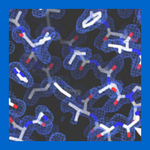 Physiology & Biophysics
Physiology & Biophysics
The Department of Physiology & Biophysics at the Boston University School of Medicine is proud to offer extensive graduate programs leading to MA, PhD, or MD/PhD degrees. Each program stresses broad laboratory training and original research performed under the direction of a faculty advisor.


